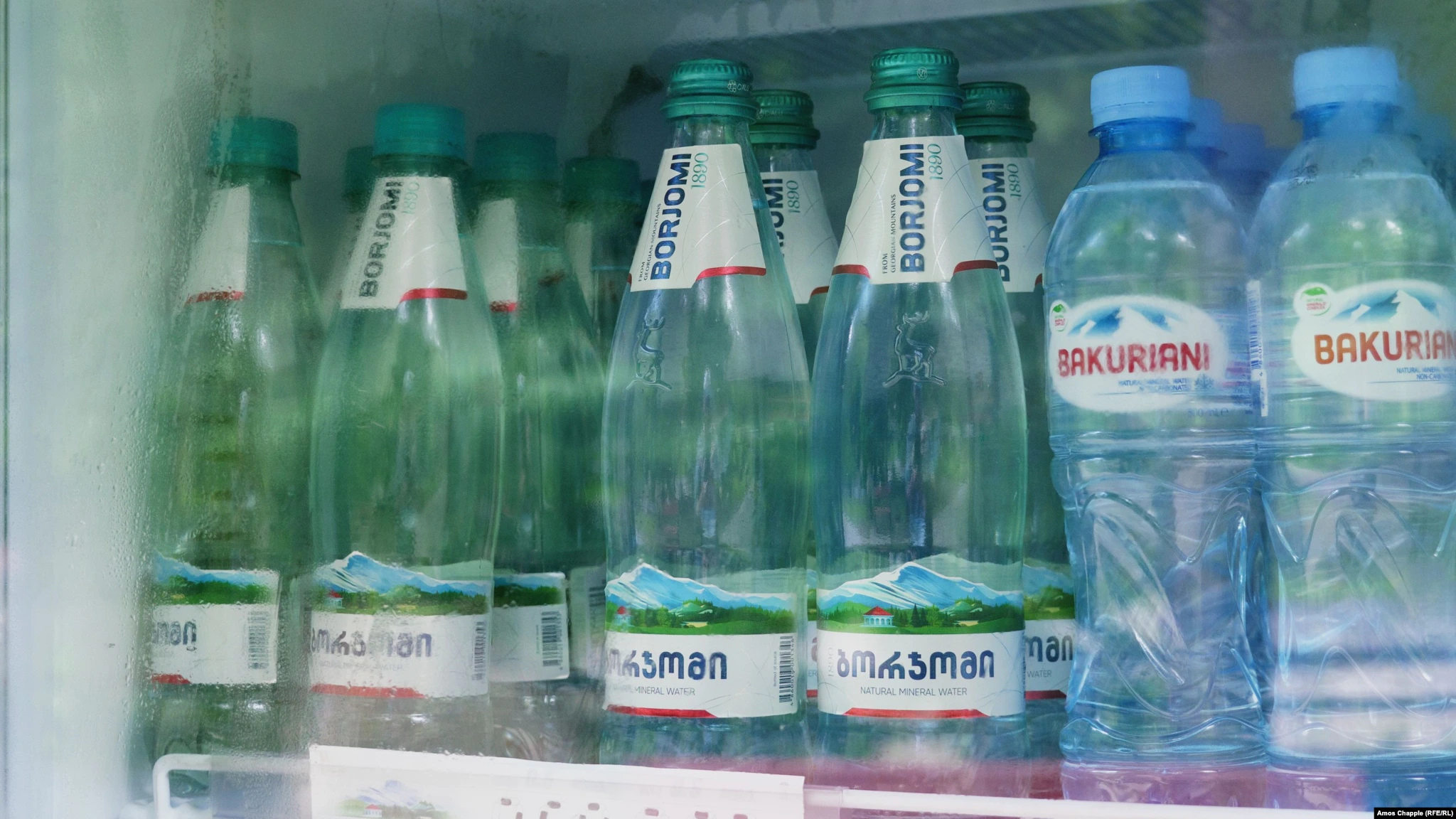A day after Georgia’s government announced it had taken over a majority stake in the iconic Borjomi bottled-water brand, workers remain on strike and the precious liquid is running straight into the town’s river.
On June 13, Georgian Prime Minister Irakli Gharabashvili announced that “the state will become a co-owner of the Borjomi factory, our national treasure and pride.”
The source of that pride is the fizzy, slightly salty water that bubbles up from several springs in Borjomi, a forested spa town 120 kilometers west of Tbilisi.

Mint-green bottles of Borjomi water were first sold throughout the Russian empire from the 1890s and the Borjomi brand would become an icon of the Soviet Union, then today’s independent Georgia. Many people swear by the eggy-smelling water’s reputed health benefits and until February 24, when Russia launched its invasion of Ukraine, it was exported to 40 countries.
On April 29, IDS Borjomi, the producer of the mineral-water brand, halted production, blaming sanctions targeting Russian-owned entities, that “limited access to bank accounts” and made export sales impossible.
IDS Borjomi has since 2013 been majority-owned by an investment conglomerate headed by Russian-Israeli Mikhail Fridman, a billionaire businessman who was targeted with sanctions shortly after Russia launched its full-scale war in Ukraine.
Fridman was born in Soviet Ukraine and has spoken out against the war, calling it “a tragedy” for both countries. Western governments, however, accuse the billionaire of having close links to Russian President Vladimir Putin.

When IDS Borjomi asked workers to return to work at half-pay under new temporary contracts, many refused and 49 workers were fired. Most factory-floor workers earned around 1,600 laris ($550) per month and say half of that is barely enough to support a family.
Factory-floor staff have been on strike for the past two weeks after talks between management and workers broke down in late May.
With bottling suspended, the iconic Georgian spring water is currently being dumped into Borjomi’s Gujaretistskali River and supplies in stores are visibly dwindling. In the seaside Georgian town of Batumi, Borjomi-branded refrigerators hum on the street with nothing inside. In Borjomi itself, the same fridges are filled mostly with other brands of sparkling water.

The June 13 agreement between the Georgian government and IDS Borjomi takes majority ownership out of Russian hands, meaning the company will be able to avoid sanctions. But in front of one of Borjomi’s two bottling plants, where workers sit in the shade of a tarpaulin or play volleyball on a nearby court, little has changed.
Giorgi Gabashvili, one of the striking workers, told RFE/RL on June 14 that after news broke of the transfer of shares to the Georgian state, workers “are not thinking ‘everything will be OK,’ but we think someone from the government may come and talk to us today, then we will give our feelings.”
The bottle-label maker says the workers’ demands remain the same, which include the reinstatement of fired colleagues and a return to previous, relatively generous contracts.

One Borjomi factory worker who spoke to RFE/RL on June 12 but asked that his name not be used in this story gave a hint of the bitterness of the dispute when he explained that he and other workers were taking shifts around the clock to watch over the factory entrance to make sure “management doesn’t try to get inside,” adding that “they don’t have that right.”
IDS Borjomi said earlier in June: “Every employee of our company is important to us. At the same time, we want to make clear that speaking the language of ultimatum and aggression…is completely unacceptable.”

A few hundred meters from where Gabashvili and other workers sit awaiting discussions with a government mediator, oblivious tourists in Borjomi’s park line up to drink the same water that was favored by Russian tsars and Georgian presidents and celebrities. Some visitors bring large bottles to take home, others drink the warm liquid from plastic cups handed out by two women attendants.
Giorgi says the storied history of Borjomi water makes the work “a very big thing for us.” The Borjomi local told RFE/RL: “We are from this town, we were born here, we studied here. Borjomi water is a symbol of Georgia, and we are very proud of working here. We want it to continue.”
By Amos Chapple

